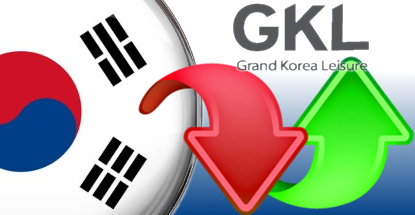 South Korean casino operator Grand Korea Leisure (GKL) turned in a mixed bag of results in the second quarter of 2015.
South Korean casino operator Grand Korea Leisure (GKL) turned in a mixed bag of results in the second quarter of 2015.
Net income in the three months ending June 30 was KRW 18.54b (US $16m), nearly twice the sum earned in the same period a year ago as revenue rose 4.9% to KRW 122.4b. But profit was down 42.4% from the first quarter of 2015 as revenue tumbled nearly 18%. For the first half of 2015, GKL’s profit is up 8.2% to KRW 50.7b.
The sequential decline can be blamed on a number of factors, particularly the outbreak in June of Middle Eastern Respiratory Syndrome (MERS) that has done such damage to the country’s tourism industry. Efforts by China to stem the flow of its citizens heading to South Korean casinos hasn’t helped.
GKL operates three of the country’s 16 foreigners-only casinos; two in Seoul and one in Busan, under the Seven Luck Casino brand. According to the South Korean Casino Association, GKL’s share of the country’s casino market rose 2.6 points to 37.2% in Q2.
Meanwhile, GKL anxiously awaits the fate of its application for one of the two integrated resort licenses that South Korea intends to award this year. The government has said it will likely be December before it reveals which two of the 34 competing bids will get the nod but it will likely announce this month where it hopes those two resorts will be built.
The Ministry of Culture, Sports and Tourism is believed to be leaning towards one more resort in the Incheon area and one in the country’s capital Seoul. Two Incheon-area resorts have already been approved; the LOCZ Korea joint venture of Caesars Entertainment and China’s Lippo Group, plus the Paradise City project, which is backed by local operator Paradise Co Ltd and Japanese firm Sega Sammy Holdings. Only the latter project has actually broken ground.
